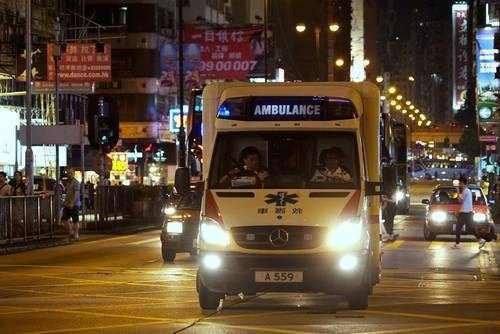As Hong Kong experiences a sudden surge in flu cases following the removal of the mask mandate, children’s wards in public hospitals are struggling to cope, and a shortage of the antiviral drug Tamiflu has emerged.
Although the situation might seem concerning, taking certain steps can help manage the shortage and safeguard vulnerable populations.
Rapid Increase in Flu Cases
Following the removal of Hong Kong’s mask mandate last month, a later-than-normal flu season has caused an increase in influenza cases. Children’s wards in public hospitals have been overwhelmed with patients, putting a strain on Tamiflu supplies. The shortage may last until June; however, Swiss pharmaceutical giant Roche has committed to delivering a high-priority shipment before May ends.
What is Tamiflu?
Tamiflu, the brand name for oseltamivir, is an antiviral drug used to treat and prevent influenza in high-risk groups. The medication can help patients recover faster and lower the risk of complications such as encephalitis and pneumonia. Tamiflu is commonly used in suspension form for patients who have difficulty swallowing pills.
Why the High Demand for Tamiflu?
The demand for Tamiflu has risen recently. The spike could be attributed to the removal of Hong Kong’s mask mandate, which led to an increase in flu infections. A majority of cases were influenza A (H1), which affects children and adults aged between 50 and 64 more than other variants. Private clinics have reported low stocks of Tamiflu in liquid form but sufficient supplies of capsules.
The Severity of Hong Kong’s Tamiflu Shortage
Health authorities have a stockpile of 11 million doses of antiviral drugs, with 90% being oseltamivir. Roche initially announced a shortage of Tamiflu in liquid form until June. They have since reconsidered and now promises an urgent delivery scheduled for the end of May.
Dealing with the Shortage
Several strategies can help manage the Tamiflu shortage. One approach is to dissolve the contents of Tamiflu capsules. This can be in water, juice, or syrup and for patients who have difficulty swallowing pills. This method, recommended by the manufacturer, allows pharmacists or carers to provide the correct dosage for high-risk patients. Additionally, authorities are encouraging generic Tamiflu manufacturers to register their products in Hong Kong. This could provide clinics with more options and alleviate the shortage. This would ensure that healthcare providers can continue to offer treatment and prevention to those at risk during the flu season.
The Impact on Children
Children’s immune systems have weakened due to limited exposure to viruses over three years of COVID-19 restrictions. As a result, many children admitted to hospitals are carrying multiple respiratory viruses. Recovery from flu typically takes three to four days, but it can extend to six to seven days if the patient has other viruses, chronic diseases, or inherited diseases.
Prevention and Vaccination
Experts urge parents to vaccinate their children against the flu, as inoculation rates remain unsatisfactory. Additionally, schools should remind children to wear masks when feeling ill and allow those with a fever to stay home. Flu infections are expected to ease in the coming weeks due to warmer weather, which makes the virus less active.

